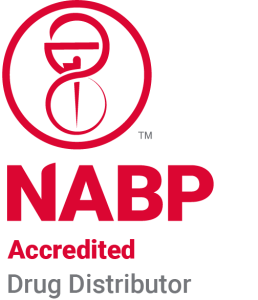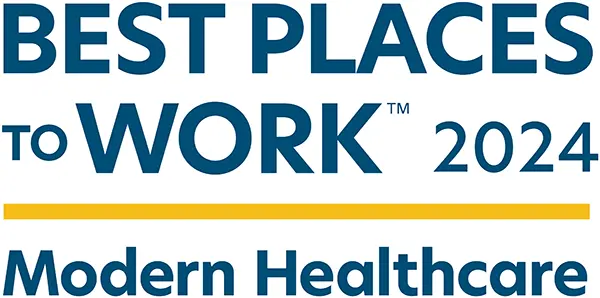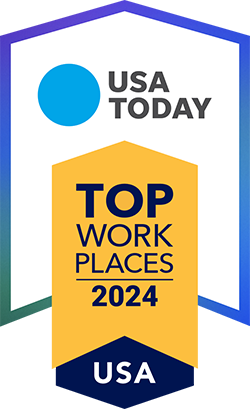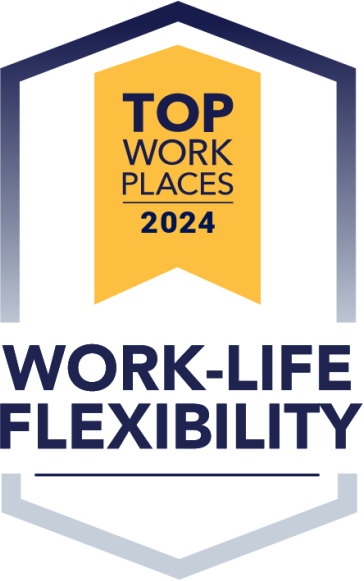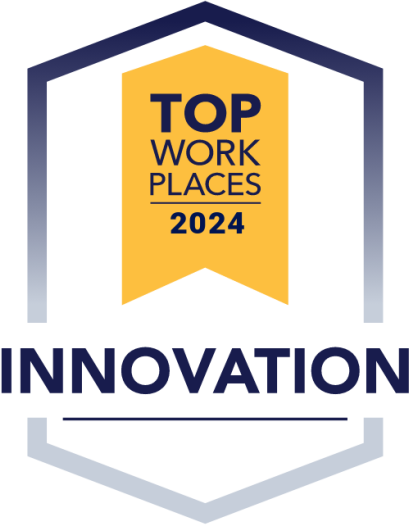Knowing your Pharmacy’s Finances in 2024
Owen BonDurant and Tim Clark from Independent Rx Consulting team up with Matt Tompkins for an insightful conversation on empowering independent pharmacies with financial insights in 2024. They delve into crucial topics such as comprehending the essential financial metrics for pharmacies and offering guidance on structuring financial records to gain a clearer breakdown of sales and expenses. As we navigate through the challenges of the early months of 2024, it’s time to regain your footing, dust yourself off, and seize control of the future starting today!
Presented by:

Owen BonDurant
Partner
Independent Rx Consulting
Owen BonDurant, a second-generation pharmacist and seasoned professional. With a wealth of experience in the pharmacy industry. With an unwavering commitment to independent pharmacies, Owen serves as the owner of a retail pharmacy, a compounding pharmacy, and an LTC pharmacy, demonstrating his comprehensive understanding of the pharmaceutical landscape. A Miami University of Ohio alumnus with a degree in marketing and a minor in management information systems (MIS), Owen has spent the last two decades making significant contributions to the field. Owen is more than a pharmacist; he is a dynamic entrepreneur, strategic thinker, and industry leader, dedicated to the success and optimization of independent pharmacies.

Tim Clark R.Ph
Partner
Independent Rx Consulting
Tim, a distinguished pharmacist and visionary leader, holds a BS in Pharmacy from the University of Cincinnati, forming the bedrock of his remarkable career. As a 3rd generation pharmacist, he transitioned into the family business and ascended to pharmacy owner. His commitment to community service is evident through roles as a Foundation Board member at Dayton Children’s Hospital and an adjunct faculty member at the University of Cincinnati College of Pharmacy. Tim’s career is defined by strategic acumen that extends beyond business transactions, reaching into community involvement and education. His dynamic leadership has not only shaped the growth of Clark’s Pharmacy but has also left a lasting impact on the broader pharmaceutical landscape, showcasing him as a forward-thinking and community-driven professional.
Transcript
00:00:00:00 – 00:00:24:08
Matt Tompkins
Well, welcome, everybody. We’re here to talk about why knowing your pharmacy’s finances is so critical and how it puts you in control. There has been so much uncertainty here in 2024 and January 2024 that it’s kind of knocked a few people off their feet a little bit. But getting back up. And so now what do we do? And so we’re going to get into why and what are the specifics that we need to know about regarding your financials and in this particular environment with the things that are happening today. And so I’m really excited to have a couple of experts on the call with me today to be able to go through and talk about what we’re what we can do and what they they’re here to share with us that we can do to be able to make a difference in 2024. And most importantly here in this particular environment. So I am joined here by Owen BonDurant and Tim Clark from Independent Arts Consulting. So Owen, you have been in the business now, what, pretty much all your life, right?
00:01:13:00 – 00:01:18:02
Owen BonDurant
Yeah, I’m starting to get a little weird to say that maybe like 30 some years.
00:01:18:03 – 00:01:19:07
Matt Tompkins
30 something years.
00:01:19:09 – 00:01:20:05
Owen BonDurant
Off, I guess.
00:01:20:05 – 00:01:35:11
Matt Tompkins
Yeah. Your experiences as an owner and you’ve worked in pharmacy and you’ve worked as a technician and you’ve started pharmacies and you’ve Run DME so you really run the gamut of understanding what our owners and our members are going through.
00:01:35:11 – 00:01:41:08
Owen BonDurant
yeah, for sure. I’m the probably the only person who has done more than me would be Tim.
00:01:41:08 – 00:01:55:00
Matt Tompkins
Yeah. And so, Tim, thank you for joining us. Tim is a pharmacist and was running a family business, third generation pharmacy, both right in working in the business and as an owner.
00:01:55:00 – 00:02:22:08
Tim Clark
Thanks for having us on. Yeah, I’ve been. Now that Owen says 30 years, I’ve got 40 some years into this. I think our parents just threw us into business when we were kids, stocking shelves and stuff, and we both went similar directions. I went to pharmacy school Owen went to business school and we ended up teaming up together and continuing to work on our family’s business.
00:02:22:09 – 00:02:45:14
Matt Tompkins
That’s fantastic. That’s fantastic. Well, thank you both for your commitment to the industry and to what all of the owners out there are doing and what you’ve done for your communities. I know IPC and Independent, Rx have been working together for a really long time and advancing the financial literacy of independent pharmacy owners of course, is something that we are both passionate, really passionate about.
So given the changes that we’ve, you know, that have just happened, I would you share with us like what are the the real key things that our owners need to think about in terms of their finances and the financial numbers that they need to know?
00:03:04:12 – 00:03:28:13
Owen BonDurant
Well, I think it when we think about that, Matt, I think the way we’ve always run our business and it always comes down to us like to a core few things and you’ve got them on the screen here, you know, you’ve got your gross margin and gross profit percentage. You have payroll and then inventory and air really make up gross margin and gross profit. So, you know, your gross margin is just your revenue minus your cost of goods. And you get what’s left after you pay for the drugs. So when you’re looking at this, there’s revenue, there’s your gross profit, and your biggest non drug expense is payroll. And so those are the three things that make up your finances. And we find people sometimes get their eye off of the most important piece of really understanding those three things are. And what makes up those three things within your business is is where to concentrate.
00:04:07:07 – 00:04:19:10
Matt Tompkins
That’s great. So when you think about gross margin, though, is there a target or an average or does it depend on the type of business?
00:04:19:11 – 00:04:43:12
Owen BonDurant
Yeah, it will depend. You know, we see, you know, in CPA and even in our client base, we see averages around 20% is kind of your gross profit percentage. We see. But, you know, things like compounding long term care, OTC items will drive that up. So that’s kind of where the baseline is. And some of that is controllable and some of it isn’t. Right. And what you’re trying to do is gain revenue. Pay less for the drugs so you have a bigger gross profit or have revenue that maybe has no cost of goods to purchase. What’s left? Clinical services, that’s obviously a big hot topic right now. Things like sure I mean, Mtn’s were the original, right? But now you’ve got diabetes, education, smoking cessation, RPMs, remote patient monitoring is becoming is getting passed from doctors to pharmacists. Now it is just an endless kind of thing that you can grab a hold of and specialize in and drive additional revenue from your current patient base, but also drive new revenue that’s high profit margin. But you’ve also got other things like immunizations compounding long term care. You know, a lot of people are doing the hybrid model where they’re, you know, billing a long term care contract for for homebound patients. So finding things that can increase your gross profit and spending time on that is where is it seems so simple, right? I need to concentrate right there. But sometimes when you’re trying to fill scripts and you’re trying to, you know, do marketing and you’ve got an employee, call it off like you can easily get your eye off of that one thing that’s driving your business.
00:06:23:15 – 00:06:49:13
Matt Tompkins
That really good. Tim, Do you have any examples going back to what Owen just shared related to the differing other services that may not have cost of goods associated with them to be able to drive higher profit margin revenue into the business? Do you have some examples of, you know, either your experience or some of your clients that on how they were able to implement some of those programs?
00:06:49:14 – 00:07:24:08
Tim Clark
Well, there’s still some opportunities when it comes to things like diabetes intervention or counseling, where people will actually will will pay for services, cognitive services and the biggest advice I usually give to people, instead of saying I’m going to focus on all these different things like immunizations and point of care testings and is limited to like one or two things that they can put an action plan together so that it’s part of their workflow. You know, typically we end up going to these conferences and we hear here’s eight different ways to make my pharmacy more profitable when they end up, you know, it’s like analysis paralysis. I’ve kind of put myself in a position that now I’m not doing anything because I’ve got all these great ideas. When, for instance, we we talk to two owners, we explain to them, you really need to look at, you know, what’s what can differentiate my pharmacy and being niche and sell it. You know if it’s if it’s packaging, if it’s compounding, if it’s if it’s services that your musicians of, it’s travel. If you got a nurse practitioner, find something that makes you difference. Any time that we we have found that we try to be a big chain store or fill, let’s say a lot of brand name prescriptions, we make no money. So we really got to know what that what those opportunities are and and pick something that you know, that you can do and your staff can do.
00:08:23:14 – 00:08:47:09
Matt Tompkins
That’s great. That’s really good advice to pick one or two things, set a differentiator, make a plan and and move on it. So, Owen, you mentioned payroll as a percentage. And we you know, we showed that earlier in a previous slide. So how is it that I should be looking at payroll as a key financial indicator of the business?
00:08:47:09 – 00:08:58:00
Owen BonDurant
Three things. There. One, you know, payroll is your biggest expense. When you look at your financial statement, all your other expenses will not be as much as payroll. So that’s why it’s on here. And we look at payroll in two ways as a percentage of sales.
00:09:05:14 – 00:09:06:10
Matt Tompkins
Okay.
00:09:06:12 – 00:09:14:05
Owen BonDurant
And we’re seeing with revenue per prescription going up, you know, people are targeting kind of nine, 10% of sales. But your type of pharmacy is going to impact that. So, for example, if your specialty, that would be bad because your revenue per prescription would be so high. If you’re long term care, your revenue per prescriptions lower. So the other way you want to look at this is fills per employee per hour, right? So are my employees filling 15 prescriptions an hour or 20 an hour? And is that going up or down? Because that really starts telling you how efficient your staff is being. And we actually break that down by pharmacist tech admin. So that way we know are the pharmacists, are we just not being efficient in the pharmacy or are we not efficient in tech tax? Like where is, where is the inefficiency?
00:10:08:00 – 00:10:19:04
Matt Tompkins
Excellent, excellent. Really good. The next thought we had on the list was inventory. So talk to me a little bit about how I should be looking at inventory value in terms.
00:10:19:04 – 00:10:43:00
Tim Clark
Well, you’re you’re you’re in your inventory. You know, now that we’ve gotten it, that we get an order every day from our wholesaler, even even if we’re we’re getting it, you know, through a secondary. We get it very soon. We don’t need to keep three months worth of inventory on the shelf. You know, you need to be looking at trying to get inventory turns closer to 15. So so somehow that they mimic what your pay cycle is. If if you’re if you’re paying weekly, then you need to have your terms increase more because the amount of money that you end up investing in the inventory gets exasperated. You’re doing things like, you know, trying to get people on, you know, auto refills for especially their brand name medications or sinking all their medicines can put you in a position where we don’t have to pay for that medicine before we get reimbursed for it. What I find a lot of people not doing it are two things. Very simply, they’re not looking at their wholesale bill until it’s the day it’s due. You know, you can look to see what we what we’re investing every day in our wholesale and kind of decide, does that really make sense based upon our sales for that week? And, you know, some of it is that our automations are set up in our systems per perpetual. We’ve got their settings wrong or that we’re not even using any perpetual system, and then we’re emotionally buying. And then you’ve got, you know, all hands on deck where you’ve got too many people who can order stuff. And they don’t understand that. When I order something, those are dollars on the shelf.
00:12:00:04 – 00:12:07:06
Matt Tompkins
Yeah. So how often do do you recommend looking at your inventory value? Is it monthly
00:12:07:10 – 00:12:31:06
Tim Clark
Every. Every day. Like part of your closing things. I mean, and the reason I say that, Matt is like, if you don’t look at it every day, then then you’re not going to think of it. Is is it a weekly importance? No. Like, it’s it’s the way it works with returning stuff. Your wholesaler too, you know, you only have so much of a window to return and get it off your next statement. So if something’s messed up now, it’s better to see that and it’s up, you know, and all these pharmacy systems have, especially if you a perpetual inventory, you can run that report and like 5 seconds.
00:12:47:06 – 00:12:47:12
Matt Tompkins
Yeah, really, really good insight. So the last financial number that we had on the list was accounts receivable. And I have to admit, I’ve seen some stores get let this get a little bit out of control. Share with us, you know, how how to keep an eye on this and and why it’s so important to to focus on.
00:13:11:06 – 00:13:35:09
Tim Clark
Well, the first thing I’m going to say about accounts receivable may be a little bit different than most, but your best way of monitoring your accounts receivable is also every day looking at your bank account, the way the way the the times have come with our are automated deposits. You know, even the ones that we get from our PSAO’s come on a routine basis. We can kind of see the rhythm of the cash coming in and and again, it’s, it’s very important to make sure that well I did not get my Express Script payments and I thought it was on a Wednesday. You can almost chart these things, you know to to help you understand your your cash flow in in as you see that the the cash coming in is is not what you expect based upon your pharmacy sales. I mean you can really start to see that I’ve got an accounts receivable problem. You know, every PSAO or wholesaler offers some sort of AR program is studies your pharmacy systems now. Now the problem with all those are is that they’re all retro. I mean it takes them forever to match up the the that the claims adjudication with with when we get received receiving the money. So so again it’s kind of like that wholesale bill where you’ve got to do this on a regular basis not not just my gosh, my accountants asking me for an hour number. I mean, dude, you should have a guess on what your air is. You know, you know, back in the day, even even my dad, you know, we’d have a chart. You know, this is when we get paid from, you know, let’s say it’s it’s Caremark. There’s only get paid from UHC like you need to you need to figure out a way to monitor it in your bank statement is easiest one to see.
00:15:04:05 – 00:15:23:06
Owen BonDurant
And in simple terms meant the you know, AR you have to have a reconciliation. There are software to do it, but that is a tool for you to use when you see there’s a problem. And what Tim is saying, if your Caremark check is always 50 grand and it comes in at 30, it’s time to start looking at your reconciliation to see if you’re not getting paid for something.
00:15:27:13 – 00:15:28:04
Matt Tompkins
All right, great. Thank you. Thank you. And so, you know, as we were prior to this call, talking about, you know, these numbers and and we talked about how to then therefore structure your books to be able to see these figures more effectively, more accurately and and more consistently. So share with us, you know, how you would think about structuring your book so that, you know, the owners are paying attention to these numbers that are critical to understand, especially given the environment today.
00:16:02:03 – 00:16:18:07
Owen BonDurant
I think this goes back to what Tim said earlier about trying to figure out one or two things. Do you want your books to be structured so that you can see what are the one or two things I need to focus on? Right. So for example, we have down here like breaking break down sales by payer. Okay, well, if you see that you do a lot of Caremark sales or Express Scripts is probably the better example. You have a lot of Express Scripts and you know, you don’t make money on that and they’re doing a whole lot less of Caremark. Well, then we should be targeting Caremark patients. And I know that sounds simple, but if you don’t even have a breakdown of that, how are you supposed to know where you are and you don’t know where to focus? And so what we’re trying to do with the financial statements and what we get a lot is sales cost of goods, payroll.
00:17:11:15 – 00:17:13:08
Matt Tompkins
But not the detail.
00:17:13:09 – 00:17:41:10
Owen BonDurant
It doesn’t tell me, you know, under my cost of goods, how much did I buy from my primary? How much did I buy for my secondary? Did I get my return check, Did I get my rebate rate? And so you then so that means you’ve got to go figure that out later, you know, And guess what happens is, is then an ice storm comes, things get shut down for two days, your tech calls off and then you just never do it. Well, if you’ve got that information in play and you see that your rebate is half of what it was last year, last month, well, then you can go. Did I buy wrong? I need to call IPC and have them look at it like you can quickly solve the problem.
00:17:57:08 – 00:17:58:13
Matt Tompkins
Right.
00:17:58:14 – 00:18:32:00
Tim Clark
You know, you’ve got, you know, a lot of your sales right now that are coming through our PSAO’s and, you know, even if even if the owners would just break out, the PSAO revenue from the other checks that come in, it would really help them kind of know where to where to look for where the money is. In the same thing on the purchasing side, you know, at least have a line for your primary wholesaler and then a secondary grouping so that you so when you get into the details, are trying to find the problems you can. And the other thing again I would press everybody is to you know as are working with their, you know, accounts and bookkeepers or whatever, don’t, don’t ever satisfy that you’re going to wait, you know, four weeks to get data that’s four weeks old. I mean, you’ve got to really push everybody to get close to just in time information or you’re going to lose things. But but, you know, the big things we can handle, you know, without a lot of work is I can handle my payroll because I have a probably a payroll system. I can handle my purchases because most of it comes from my wholesaler. And I can look at that and I can look at my bank account, Right? I mean, I’m I’ve been doing this for 40 years. And every day, you know what I do the first thing that I log into the bank and I see how much money we got, and then I click on it to see like where it came from and where it went.
00:19:33:09 – 00:19:35:08
Owen BonDurant
Yep.
00:19:35:10 – 00:19:36:08
Tim Clark
I mean it. Well.
00:19:36:10 – 00:19:56:12
Matt Tompkins
Yeah. Anymore. You know, I know you guys do a great job of, of serving your clients by being able to share this information. And so I really appreciate you sharing all of this with us to be able to help our owners and help help all pharmacy owners understand the details of what it is that they need. If you wouldn’t mind, just share, you know, a little bit more specifically about how you and, you know, take care of your clients to be able to offer these services specifically.
00:20:10:13 – 00:20:41:10
Owen BonDurant
I mean, we primarily do three things. We walk people through the life cycle. We help people buy and start pharmacies. Okay. So we will help them identify the store to buy, take them through due diligence financing, change over licenses and insurance contracts and same and start you help someone, start, find a location, get licensed, get opened. Right. And then we do with accounting for pharmacies. So the bookkeeping delivering financials monthly and on time doing tax planning and tax advice. We also provide a dashboard of other key metrics out of the our pharmacy system. And then we help them. And then eventually they need to sell and we help them sell their pharmacies. And when when it’s time to exit and that’s when our business is.
00:21:08:01 – 00:21:32:06
Tim Clark
And and everybody Matt as you know, from from being in this industry. I mean, everybody’s got a little bit different spin on an all you know, every store it may look like there’s 20,000 independent pharmacies are the same but there there’s probably 20,000 are all doing a little bit differently now. And and, you know, what we found is we we recognize that. And that’s what’s great about talking to them, because no one is the same. But everybody has needs someone to bounce ideas off of and want to be successful. I mean, I think that’s probably why we align with your group so much, is that you’re just trying to keep these people in business and successful, give them an ear and some advice. And it’s the same for us.
00:21:56:05 – 00:22:17:01
Owen BonDurant
Yeah, And, and I think we can do that. I mean, part of the reason we’re we’ve done so well is that we own pharmacies ourselves, right? So, you know, we’re doing the same things that our clients and your clients are doing. And so we, you know, some of that is just listening and understanding exactly what they’re going through.
00:22:17:02 – 00:22:49:05
Matt Tompkins
Well, yeah, yeah. My experience is that they having someone who understands the industry and understands it to the level that you do and to that to to the level we do is so critical because it is so unique. And I think Tim put it beautifully that everybody’s business is a little bit different, but at least if you have the foundation of understanding the industry itself and pharmacy, you really have the opportunity to provide the proper guidance consulting that pharmacy owners really need. So, gentlemen, thank you so much for spending this time with us. I know you know, right now we’re hearing from all of our members and clients that things are a little unsettled in 2024. And I think this is going to help give them a little bit more clarity that they can take control over what’s happening to them and and move their businesses and move their pharmacies forward. So thank you so much for that time. I really appreciate it and looking forward to a successful 24.
00:23:20:03 – 00:23:21:14
Owen BonDurant
Yeah. Thanks, Matt. Appreciate it.
00:23:21:14 – 00:23:23:11
Tim Clark
Great. Thanks.
00:23:23:13 – 00:23:25:04
Matt Tompkins
Thank you.
